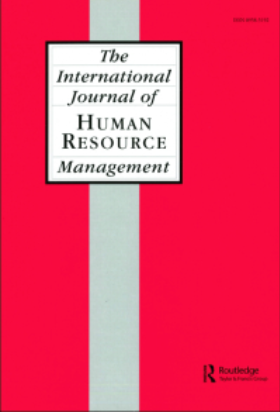私营部门培训和劳动力市场的组织:来自爱尔兰共和国比较视角的证据
IF 4.9
2区 管理学
Q1 MANAGEMENT
International Journal of Human Resource Management
Pub Date : 2001-08-01
DOI:10.1080/09585190110047839
引用次数: 10
摘要
企业可以通过提高员工技能来获得竞争优势。然而,主流理论认为,由于市场失灵,他们不愿参与培训。加上国家培训系统的行政失误,这可能导致整个经济的技能供应不足。鼓励企业参与培训的紧密协调的劳动力市场被广泛视为解决这一问题的办法。但劳动力市场协调的典范德国和日本近年来表现不佳,给这种观点蒙上了阴影。因此,理论与实践之间出现了差距。在英国、澳大利亚和美国等所谓的非协调经济体,技能形成活动的发展加剧了这一差距。在这些国家,已经出现了向以能力为基础的技能形成模式的决定性转变。这种基于能力的模型挑战了一些核心假设,这些假设支撑着企业培训战略的传统“搭便车”观点。一方面,它表明公司通常比通常认为的更愿意自愿参与培训。另一方面,更广泛的劳动力市场协调仍被认为对技能形成很重要,不是为了创造制度性激励或惩罚,而是为了解决就业系统中的信息和信号失灵问题。因此,实地的发展正在鼓励对公司一级技能形成活动的标准观点进行重新评价。我们通过对爱尔兰经济三个部门的公司内部培训的原始调查数据,对基于能力的技能观背后的一些想法进行了测试。经验证据证实了高水平的培训活动,也证实了公司倾向于将培训嵌入到人力资源措施的综合包中以获得最大效果。本文章由计算机程序翻译,如有差异,请以英文原文为准。
Private Sector Training and the Organisation of the Labour Market: Evidence from the Republic of Ireland in Comparative Perspective
Enterprises can gain competitive advantage by increasing employee skills. Yet, mainstream theory suggests that they are reluctant to engage in training because of market failures. Together with administrative failures in national training systems, this can lead to an economy-wide under-provision of skills. Tightly co-ordinated labour markets that encourage firms to engage in training are widely seen as a solution to this problem. But the exemplars of co-ordinated labour markets, Germany and Japan, have performed poorly in recent years, casting a shadow over this view. Thus, a gap is emerging between theory and practice. Accentuating this gap are developments in skill formation activity in so-called non-co-ordinated economies like Britain, Australia and the USA. In these countries there has been a decisive shift towards a competence-based model of skill formation. This competence-based model challenges some of the core assumptions underpinning the traditional ‘free-riding’ view of enterprise training strategies. On the one hand, it suggests that firms are usually more willing to engage in training voluntarily than is often assumed. On the other hand, wider labour market co-ordination is still considered important for skill formation, not to create institutional incentives or penalties but to address information and signalling failures in employment systems. Thus, developments on the ground are encouraging a reappraisal of the standard view of firm-level skill formation activity. We test some of the thinking behind the competence-based view of skill with original survey data on in-company training in three sectors of the Irish economy. The empirical evidence confirms high levels of training activity, and also confirms that companies tend to embed training in an integrated package of human resource measures for maximum effect.
求助全文
通过发布文献求助,成功后即可免费获取论文全文。
去求助
来源期刊
CiteScore
11.70
自引率
7.10%
发文量
77
期刊介绍:
International Journal of Human Resource Management is the forum for HRM scholars and professionals worldwide. Concerned with the expanding role of strategic human resource management in a fast-changing global environment, the journal focuses on future trends in human resource management, drawing on empirical research in the areas of strategic management, international business, organizational behaviour, personnel management and industrial relations that arise from: -internationalization- technological change- market integration- new concepts of line management- increased competition- changing corporate climates Now publishing twenty-two issues per year, The International Journal of Human Resource Management encourages strategically focused articles on a wide range of issues including employee participation, human resource flow, reward systems and high commitment work systems. It is an essential publication in an exciting field, examining all management decisions that affect the relationship between an organization and its employees. Features include; -comparative contributions from both developed and developing countries- special issues based on conferences and current issues- international bibliographies- international data sets- reviews

 求助内容:
求助内容: 应助结果提醒方式:
应助结果提醒方式:


